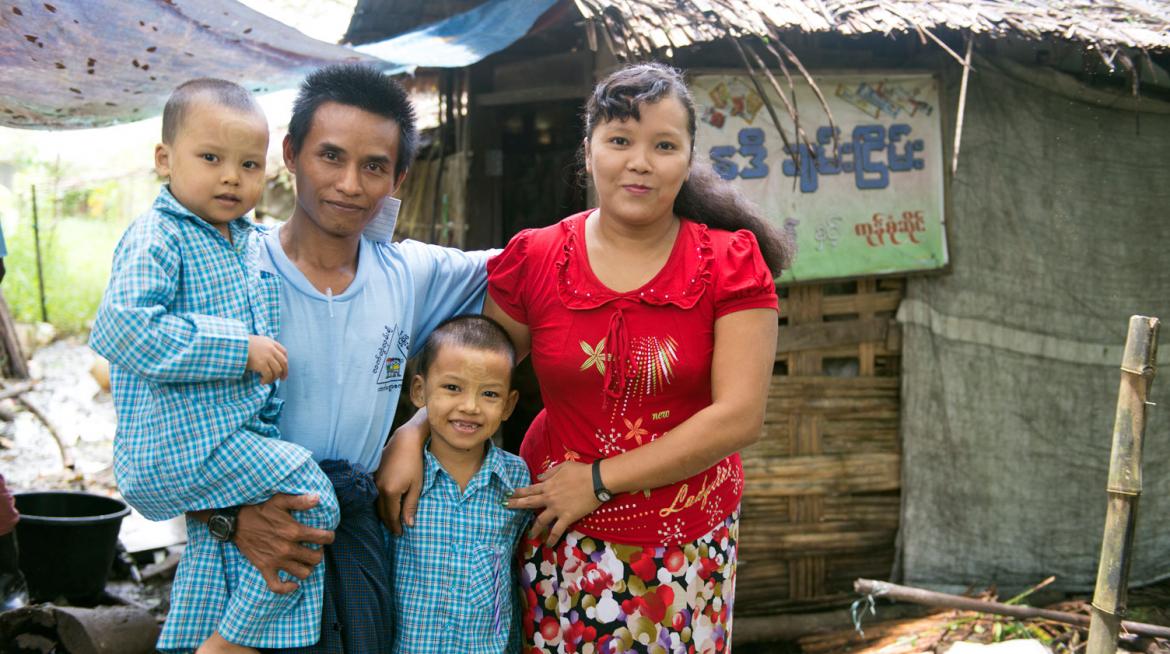
The number of households that experienced food shortages fell sharply between 2011 and 2013, according to a survey of households produced by LIFT, which also noted an increase in the variety of foods being consumed.
YANGON, August 18, 2014 - Since 2010, LIFT has worked to improve the livelihoods and food security of poor families in Myanmar. In order to assess the outcomes and impact of LIFT support, in late 2011 LIFT conducted a Baseline Household Survey covering 252 villages spread across Myanmar’s geographic zones. Last year, LIFT commissioned a second household survey covering 2,400 LIFT households and 800 control households in 200 villages. The results have been complied in LIFT’s Household Survey 2013, and clear comparisons with the baseline study tell a story of rapid change in both LIFT supported and control villages.
The results show that many of the changes are greater in LIFT households, suggesting that LIFT interventions are positively impacting the lives of targeted poor rural communities.
Significant changes include an increase in food availability. In 2011, 75 percent of LIFT households reported experiencing food shortages at least one month out of the year. By 2013, this number had fallen to 10 percent.
Households in both LIFT supported and control villages also reported more variety in the foods they consume. This was confirmed by survey results showing an increase in the household dietary diversity score (HDDS), which is a widely used proxy measure of household food access.
Another important change is an increase in the average number of assets owned by households. Recent purchases included farming equipment, vehicles, electronics and solar panels. There was a marked increase in the use of solar power over kerosene/oil lamps, with solar charged batteries providing the most common source of lighting.
“The report indicates some improvement in the lives of the rural poor,” said LIFT Fund Director, Andrew Kirkwood. “It’s really good news. The survey shows that the standard of living in rural areas is improving where LIFT is working, and where LIFT isn’t working. But, things seem to be improving faster where LIFT is active, and this is encouraging. LIFT will continue to commission studies to improve our understanding of the changes taking place, to guide policy dialogue and programming priorities.”
LIFT will conduct a third household survey in 2016.
The Dataset from the survey is published to allow interested parties to use and further analyse the material for knowledge sharing purposes.
Please find the report, summaries and data set below:
Summary of Key Findings (English)
Summary of Key Findings (Myanmar)
Presentation slideshows by Simon Baker:


